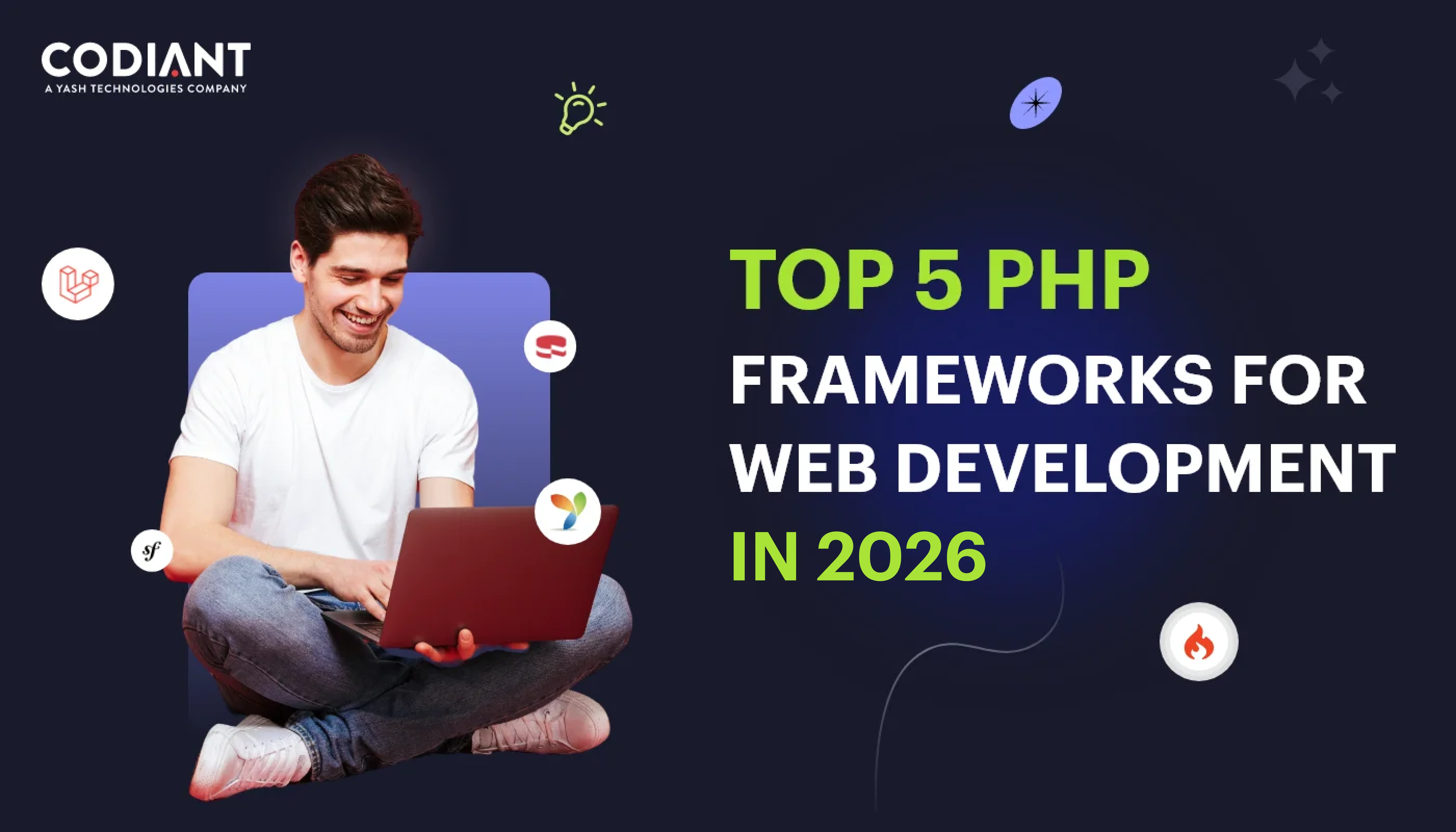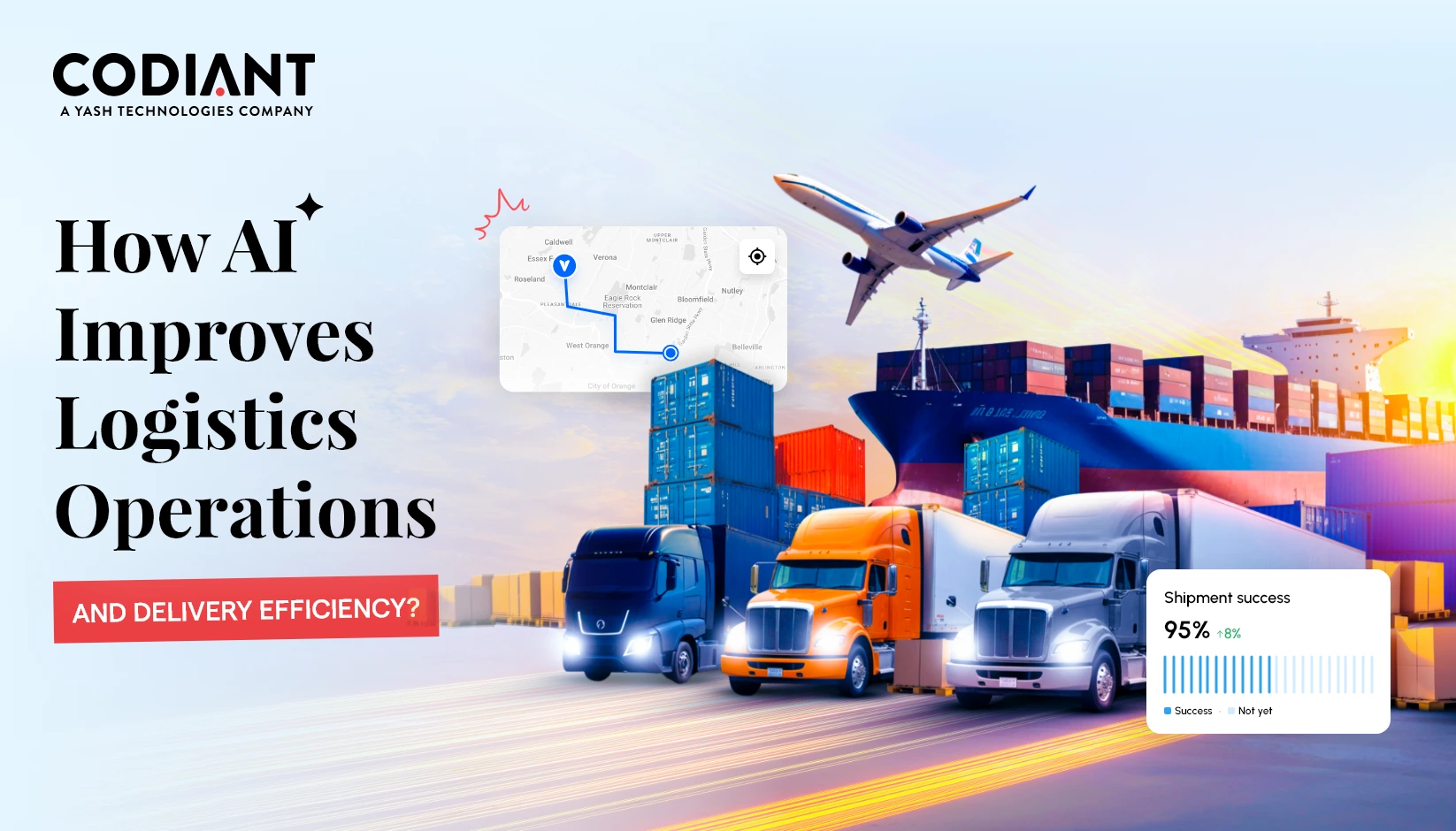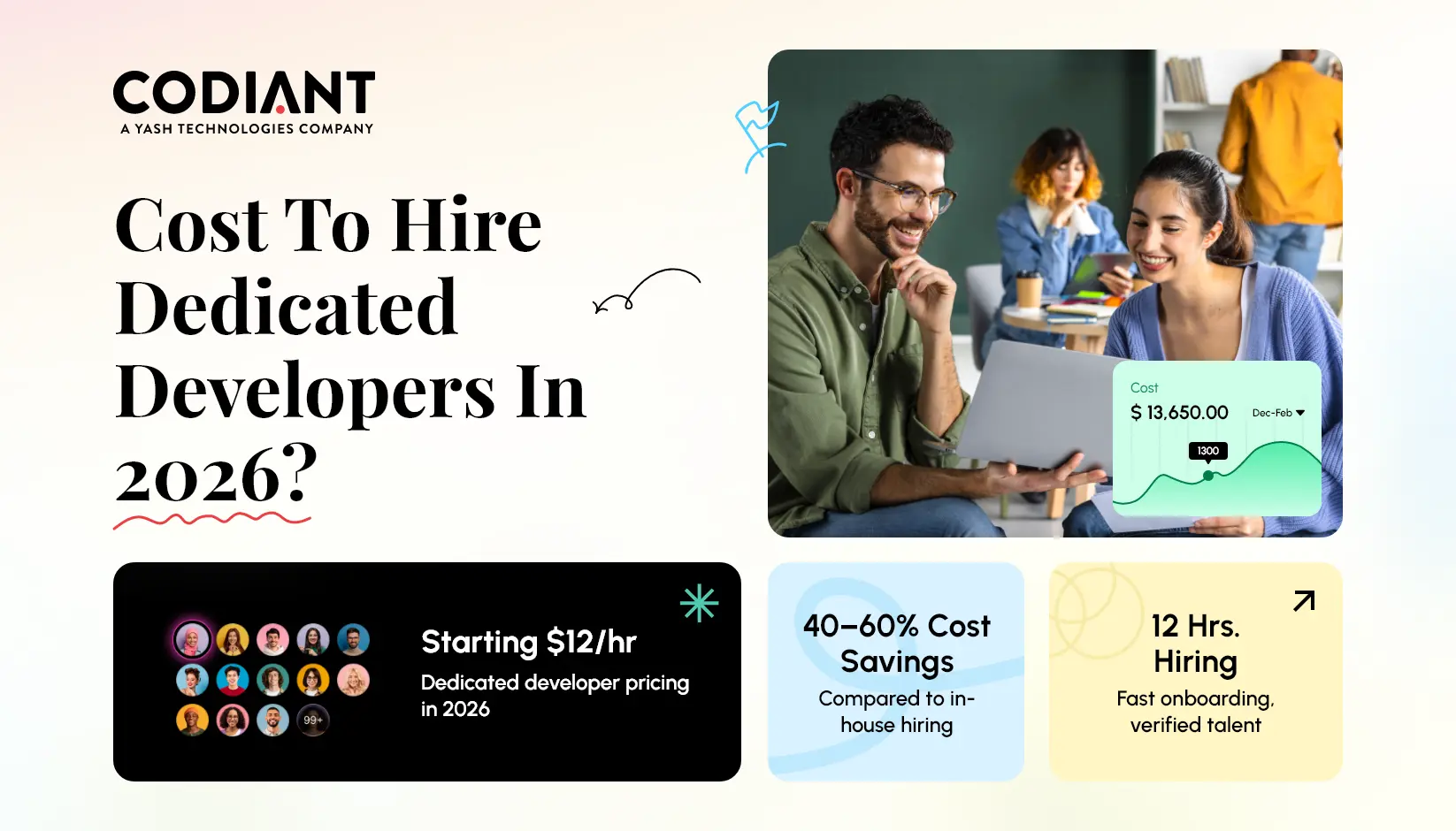Top 5 PHP Frameworks for Web Development in 2026
Table of Contents
Subscribe To Our Newsletter

For PHP developers, the introduction of the concept of frameworks is no less than a boon. These frameworks are equipped with actual programs on which the software is built. The frameworks provide ready-made components and libraries to speed up the overall development process, making them ideal for custom web development projects.
In this reference, PHP (Hypertext Preprocessor) is a web development programming language that is packed with a great number of frameworks that facilitate different dimensions. PHP powers more than 79% of websites worldwide as a server-side programming language to date.
PHP is a Reliable Option for Web Development
The popularity of PHP web development stems from the availability of high-quality web development frameworks. While some consider PHP to be an outdated programming language for developing business websites, Google search trends tell a different story.

The best part? PHP remains a powerful and relevant choice for custom web development in USA in 2026. Its widespread global PHP framework adoption is driven by innovation, ease of use, flexibility, and a robust ecosystem, making it a top choice for web developers creating dynamic and interactive websites.
Brief About PHP Framework
A PHP framework provides a structured foundation for building web applications using the PHP programming language. With built-in tools and libraries, a PHP framework can reduce development time while supporting scalable USA web development and aligning with business objectives.
By leveraging the best web frameworks for international businesses, developers can create versatile applications tailored to both local and global markets. PHP developers in the USA can craft personalized PHP-based solutions to streamline web development efforts.
There are several top PHP frameworks available for developers in the USA. These PHP frameworks depend on factors like scalability, data privacy laws, CCPA compliance, and performance to enable secure web development. These popular options excel in both custom web development in the USA and the global PHP framework adoption. However, choosing the right PHP framework can be a dilemma for many people, as frameworks like Laravel and Symfony for USA businesses offer unique strengths for various project requirements.
Let’s take a look at each PHP framework one by one. Read below:
Top 5 PHP Frameworks for Web Development in 2026
Selecting the best frameworks for scalable USA web development is fundamental aspect in 2026. PHP frameworks like Laravel, Symfony, CodeIgniter, CakePHP, and Yii offer flexibility, robust security, and seamless database handling, empowering developers to create innovative web solutions.
Here are the top 5 PHP frameworks for website development in 2026 and beyond:
1. Laravel
Laravel is the best PHP framework for web development. It was developed by ‘Taylor Otwell’ and released in June 2011. It’s an open-source PHP framework that can manage complex web apps with high security and comparatively faster than other PHP frameworks. Hence, it becomes easy for the Laravel developers to handle authentication, routing, session, caching, etc. There are many Laravel web development companies that claim to provide all such operations and build a unique solution.

Key Features-
- Use the open-source Doctrine ORM for efficient database operations.
- Support multiple databases like Oracle, MySQL, SQL Server, and SQLite.
- Integrate seamlessly with large development projects such as Drupal.
- Feature a robust debugging toolbar that simplifies troubleshooting.
- The Twig templating engine is fast, secure, and easy to learn.
2. CodeIgniter
CodeIgniter is a web development framework with a small footprint of only 2MB (including documentation), making it faster than other PHP frameworks. It was developed by EllisLab and released in February 2006. It is one of the oldest frameworks, which supports quick and high-quality performance. This PHP framework is apt for dynamic website development. It is equipped with a wide range of prebuilt modules that support robust platform development and reusable components. It also offers quality error management and easy-to-read documentation.

Key Features-
- Perform faster database operations than other frameworks.
- Beginner-friendly with easy installation and clear documentation.
- Include built-in security tools for robust protection.
- Deliver exceptional performance for seamless web functionality.
- Offer features to protect against remote code execution, SQL injection, and XSS attacks.
3. Symfony
Symfony is a modular-based PHP framework that is most suitable for large-scale corporate applications. It was introduced by Fabien Potencier in 2005. It is an open-source PHP framework sponsored by SensioLabs. As an extensive PHP MVC framework, it can easily integrate with PHP Unit and independent libraries. It is often the first choice of developers because of the availability of reusable components and libraries. With these tools, authentication, object configuration, templating, and other tasks can be done easily. The Symfony framework is used to build not only web apps but also microservices and APIs.

Key Features-
- Use the open-source Doctrine ORM for efficient database operations.
- Support various databases like Oracle, MySQL, SQL Server, and SQLite.
- Integrate with large projects such as Drupal seamlessly..
- Use the fast, secure, and easy-to-learn Twig templating engine.
- Feature a flexible debugging toolbar for simplified troubleshooting.
4. CakePHP
CakePHP is a rapid-development PHP framework modeled after Ruby on Rails. It was released under the MIT license in April 2005. It’s an open-source web development framework that follows ORM techniques and MVC architecture to enable PHP rapid development. This is one of the best PHP frameworks that is also easy to learn. It is a CRUD framework, which stands for Create, Read, Update, and Delete. The CakePHP framework follows the CoC (Convention over Configuration) approach, which defines the coding guidelines that developers need to follow.

Key Features-
- Simple installation with just a framework copy and a web server.
- Support design patterns like Front Controller and Associative Data Mapping.
- Scaffolding and code generation for quick MVP development.
- Robust security features including input validation, SQL injection prevention, XSS, CSRF protection.
- Comprehensive documentation and premium assistance from Cake Development Corporation.
5. Yii
Yii is an open-source, high-performing PHP framework for developing web apps rapidly. It is pronounced as Yee or Ji – which means simple and evolutionary. Yii also stands for ‘Yes, it is’! Yii – the PHP framework was released in 2008. It is a fast, flexible, and secure PHP framework for web development that specifically extends its brilliant support to building websites using MVC architecture. Yii is a strict object-oriented PHP framework that requires an understanding of polymorphism, inheritance, etc. The documentation for the Yii framework is very well-prepared and organized. This not only helps users learn how to build an app, but also how to work with databases, MVC patterns, and other functionalities.

Key Features-
- Easy-to-follow guides for various caching types, from server-side to client-side.
- Boost security with authorization, authentication, and cryptographic features.
- Highly flexible, allowing code modifications, though beginners may need time to learn.
- Developed by experts, Yii has an active community for support via forums.
- Gii2 code generator simplifies MVPs, prototypes, and CRUD operations.
Read more: 10 Best Web Application Development Framework
How to Choose the Best PHP Framework?
When choosing the best PHP framework, consider factors like project size, complexity, and specific goals. Look for frameworks with flexibility, ease of use, strong community support, and security features. Ensure compliance with standards like GDPR and CCPA. Read below about these aspects in detail below:
- Choosing Frameworks Based on Project Size
For small projects, CodeIgniter ensures quick development for small projects while Laravel is the best for larger apps.
- Matching Frameworks to Project Goals
E-commerce stores work best with the Magento framework, especially when configured with best practices like a Secure Magento Cron PHP setup, while CMS projects are better suited for frameworks integrating with WordPress.
- Considering Team Skills and Expertise
Choose a framework like CodeIgniter, Yii, or Laravel that your team knows to avoid learning curves and unnecessary delays.
- Evaluating Community Support and Resources
Active communities and meaningful documentation can simplify the development process and resolve challenges at a rapid pace.
- Ensuring Compliance with Data Privacy Standards
Frameworks must support CCPA and GDPR. Laravel offers tools for secure authentication and data privacy.
How PHP Frameworks Align with USA Data Privacy Laws?
PHP frameworks offer tools to develop web applications that comply with data privacy regulations like the CCPA and GDPR. Here’s how:
- User Data Protection: Features like encryption, secure cookies, and authentication tools help safeguard personal data.
- Access Control Management: Frameworks like Symfony and Laravel support role-based access control for data restriction.
- Data Retention & Deletion: PHP frameworks can integrate with databases to manage user data retention or facilitate deletion upon request.
- Transparency & Consent: Frameworks allow for seamless integration of cookie banners and consent forms to meet CCPA and GDPR requirements.
Final Thoughts
PHP frameworks streamline web development, enabling scalable, secure, and high-performance applications. Each framework has its strengths, tailored for specific use cases and business needs.
If you’re navigating challenges in selecting the best PHP framework or require expert guidance in developing compliant, cutting-edge applications, consider partnering with Codiant, a leading Mobile App Development Company in UK. Our skilled developers ensure seamless development and adherence to global data privacy laws, delivering solutions that optimize your business processes and user experience.
Frequently Asked Questions
The best PHP framework depends on project requirements. The best framework aligns with the development needs, team expertise, and project size.
1. Laravel is popular for its syntax, powerful tools, and security features.
2. Symfony is ideal for complex, enterprise-level applications.
3. CodeIgniter is lightweight and fast PHP framework.
4. Yii offers exceptional performance for particular use cases.
CodeIgniter is often regarded as the fastest PHP framework due to its small footprint and minimalistic approach. With a size of just 2MB, it allows for rapid development and ensures low overhead, which contributes to faster execution times. However, Yii and Laravel also provide excellent performance when optimized properly for particular use cases.
Laravel is one of the most popular and feature-rich PHP frameworks, widely recognized for its ease of use, scalability, and built-in tools for authentication, routing, and caching. While it’s an excellent choice for most projects, whether it’s the best depends on the project’s complexity and requirements. Other frameworks like Symfony and Yii may suit different needs.
Yes, CodeIgniter remains relevant in 2025, particularly for small to medium-sized projects. Its lightweight nature and simple learning curve make it a great option for developers looking for quick, efficient development without unnecessary complexity. While it may not have as many features as more modern frameworks, it is still reliable for many use cases.
Laravel is generally considered better than CodeIgniter for more complex and large-scale projects. It offers a broader range of features, including an integrated ORM, powerful routing, and robust security tools. CodeIgniter, on the other hand, is better suited for smaller, less complex applications due to its simplicity and faster performance. The choice depends on the project’s needs.
Performance is vital, akin to your car’s engine, but it’s not everything. A high-performance framework can lead to quick load times, enhanced user experience, and reduced server costs. But developer productivity, code sustainability, and available features are equally crucial. Occasionally, a slightly slower, easier-to-use framework can produce a better final product. It’s about balance – the framework should be fast enough for your needs.
Featured Blogs
Read our thoughts and insights on the latest tech and business trends
How to Choose the Right AI Development Partner in the USA (Enterprise Guide 2026)
- February 12, 2026
- Artificial Intelligence
In a Nutshell Enterprise AI success starts with clear business goals, not vague plans like “we need AI.” The best AI development partners deliver real production systems, not just impressive demos or prototypes. Industry alignment... Read more
How AI Is Transforming Transport & Logistics Operations in Real Time
- February 10, 2026
- Artificial Intelligence Logistics & Transportation
In a Nutshell: AI in transport & logistics is enabling faster, smarter decision-making across fleets, warehouses, and supply chains. Real-time logistics optimization improves route planning, dispatching, and delivery efficiency as conditions change. AI-driven forecasting and... Read more
How Much Does It Cost to Hire a Dedicated Developer in 2026?
- February 6, 2026
- Staff Augmentation
In 2026, hiring software developers is a substantially different process than it was just a few years ago. Remote work has become the norm and businesses are no longer limited to hiring talent in their... Read more




